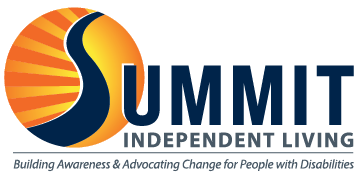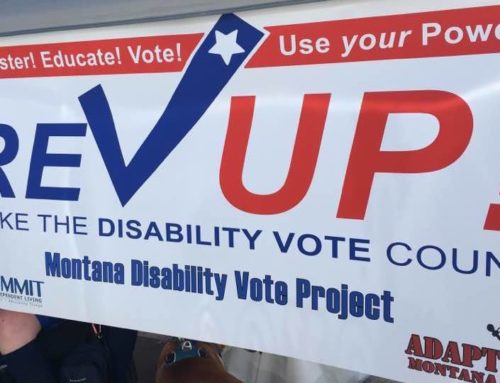Like it, Love it, or Hate it…now that Health Care Reform has passed, let’s take a look at some of the provisions that pertain to people with disabilities. First, we are pleased to announce the inclusion of the Community First Choice (CFC) Option that we worked hard with lawmakers and other advocates all year long to get included in addition to other long-term care-related provisions. These provisions bring people with disabilities across America one-step closer to home and community-base supports and ending the institutional bias in Medicaid.
The Patient Protection and Affordable Care Act and its companion legislation, the Reconciliation Act of 2010, together include several items related to home and community-based services as well as require insurance companies to sell and provide health care coverage for people with pre-existing conditions. For example, starting in October of 2011, the CFC Option will give states the choice to work towards rebalancing their long-term care systems and provide home and community based services to Medicaid recipients instead of focusing or only providing long-term care services and supports in nursing homes or other institutional settings. The federal Money Follows the Person program will be extended until 2016. Provisions of the CLASS Act are also included in the new legislation. States will have increased federal funding matching incentives to fund community services. Yet while passage of this legislation is a social landmark, much remains to be done.
Other Key Provisions of Health Care Reform
Aging and Disability Resource Centers
The bill provides $10 million a year over five years (FY 2010-2014) for the continuation of Aging and Disability Resource Centers (ADRCs) through the demonstrations developed by the Administration on Aging and the Centers for Medicare and Medicaid Services.
Medicare Part D Improvements
The bill makes improvements to the annual enrollment process for beneficiaries; in particular, changes the timing of the Part C and D enrollment period to begin on October 15 and end December 7, starting in 2012. Includes an annual 45-day period of disenrollment from Medicare Advantage plans to allow beneficiaries to change their election to the original Medicare fee-for-services program under Part A and B, beginning in 2011.
Outreach and Assistance Funds for Part D
The bill provides additional funding to support outreach and assistance for Part D and low-income prescription drug programs by State Health Insurance Assistance Programs (SHIPs), AAAs, ADRCs, and the National Center for Benefits and Outreach Enrollment including a total of $45 million to these entities between FY 2010 and 2012. In addition to these efforts, the funded entities would support outreach activities aimed at preventing disease and promoting wellness.
Empowered at Home
Empowered at Home provisions will remove certain barriers to providing Medicaid HCBS by offering states more flexibility in state plan amendments for HCBS and modify the spousal impoverishment statute to mandate that states include the spousal impoverishment protections in their waiver programs.



Connect With Us